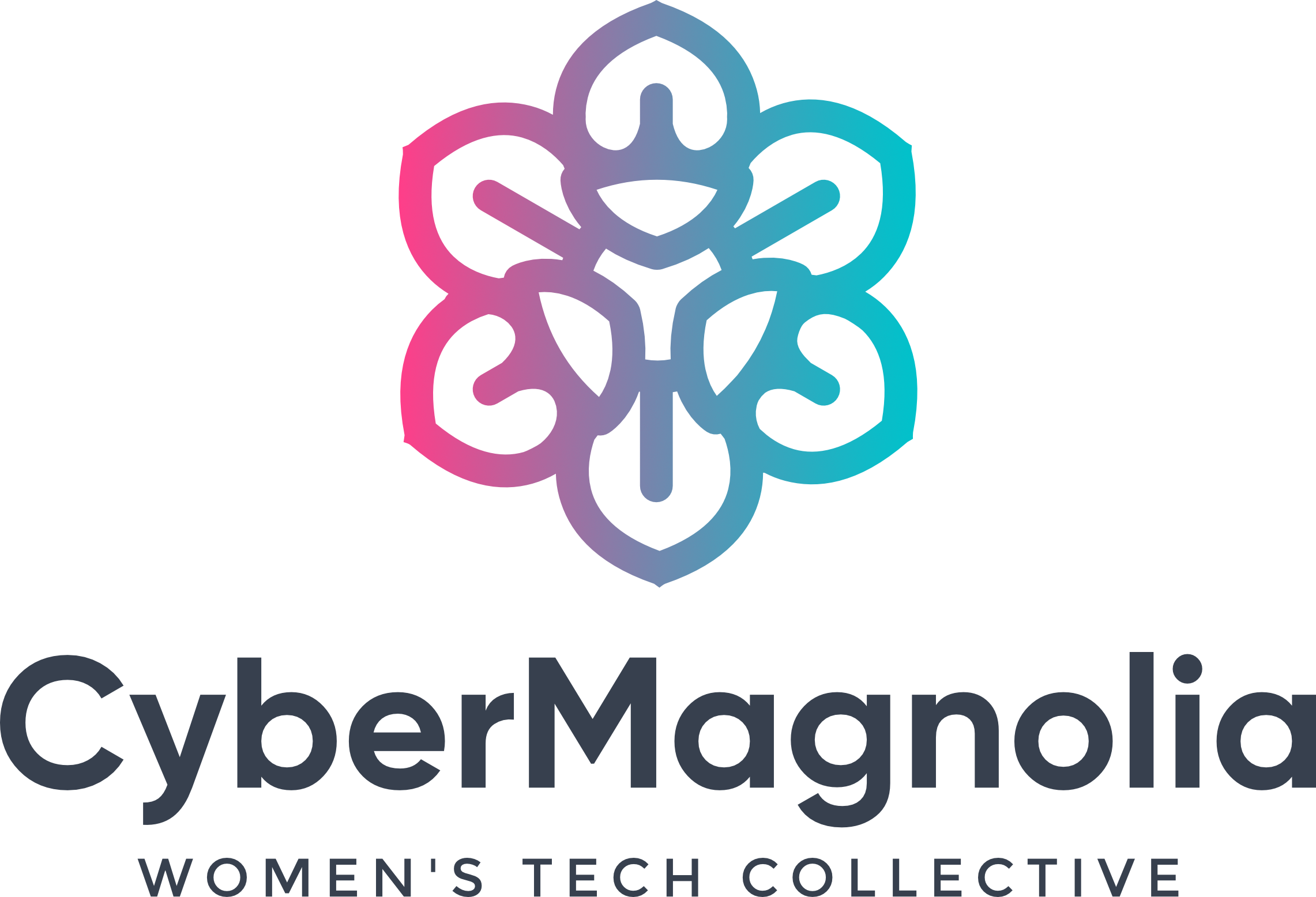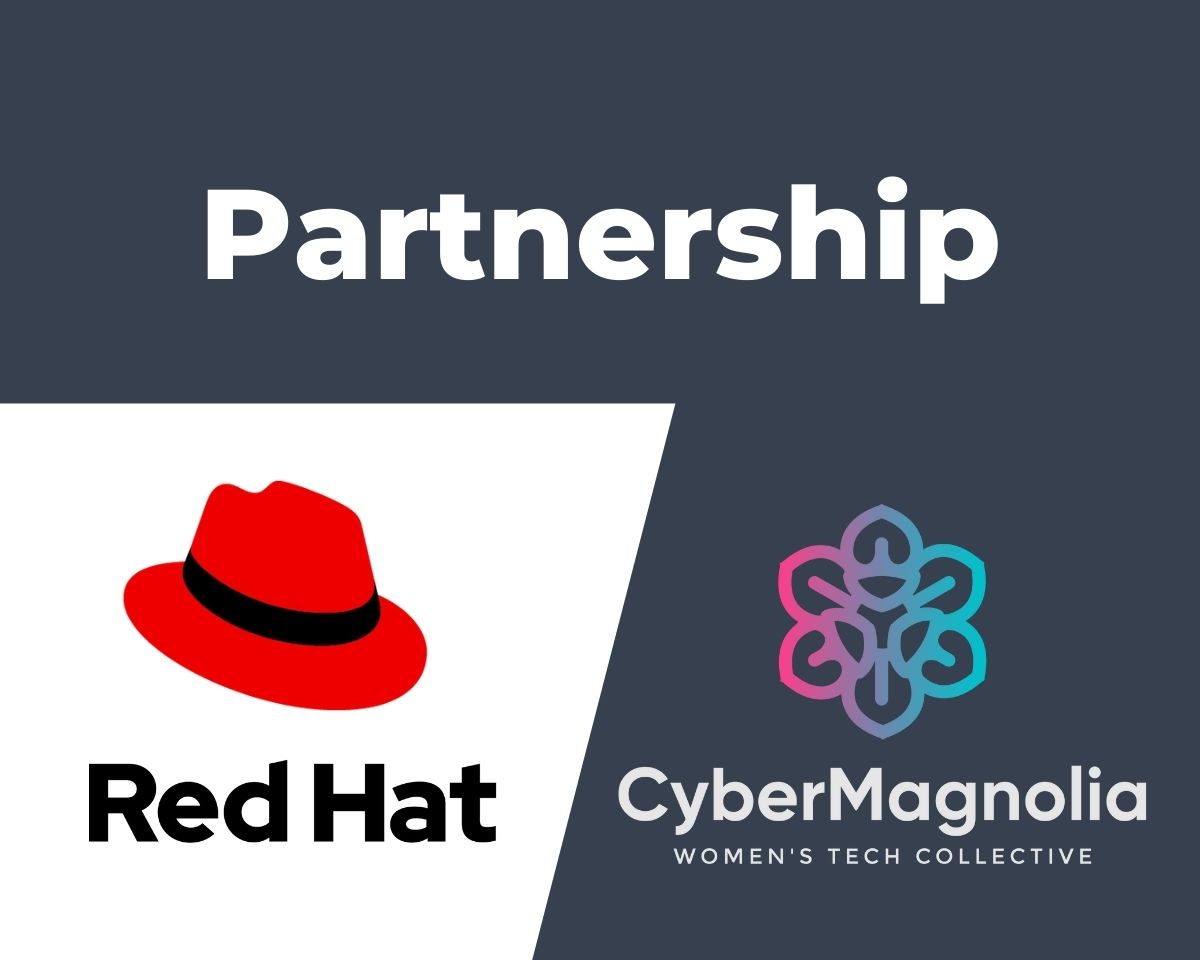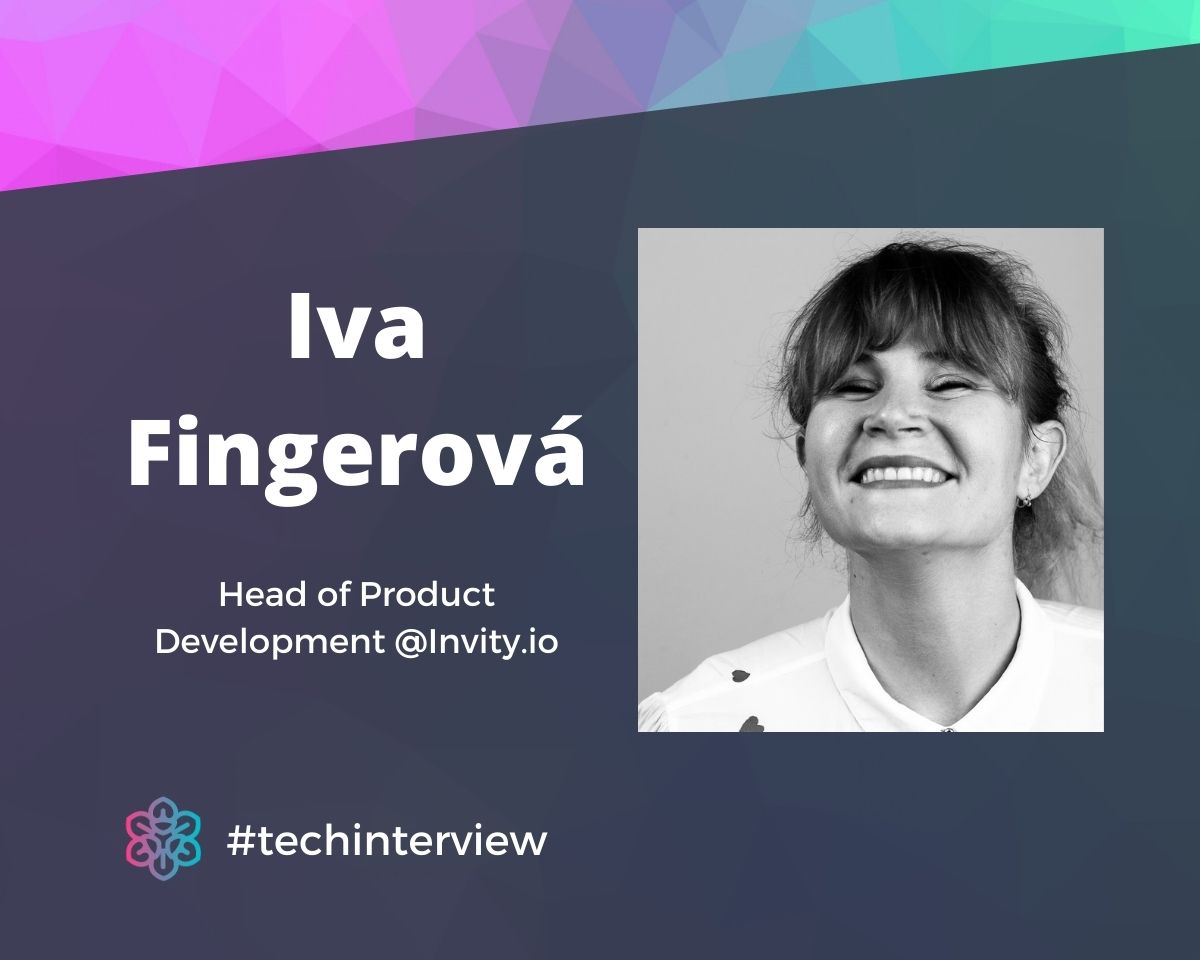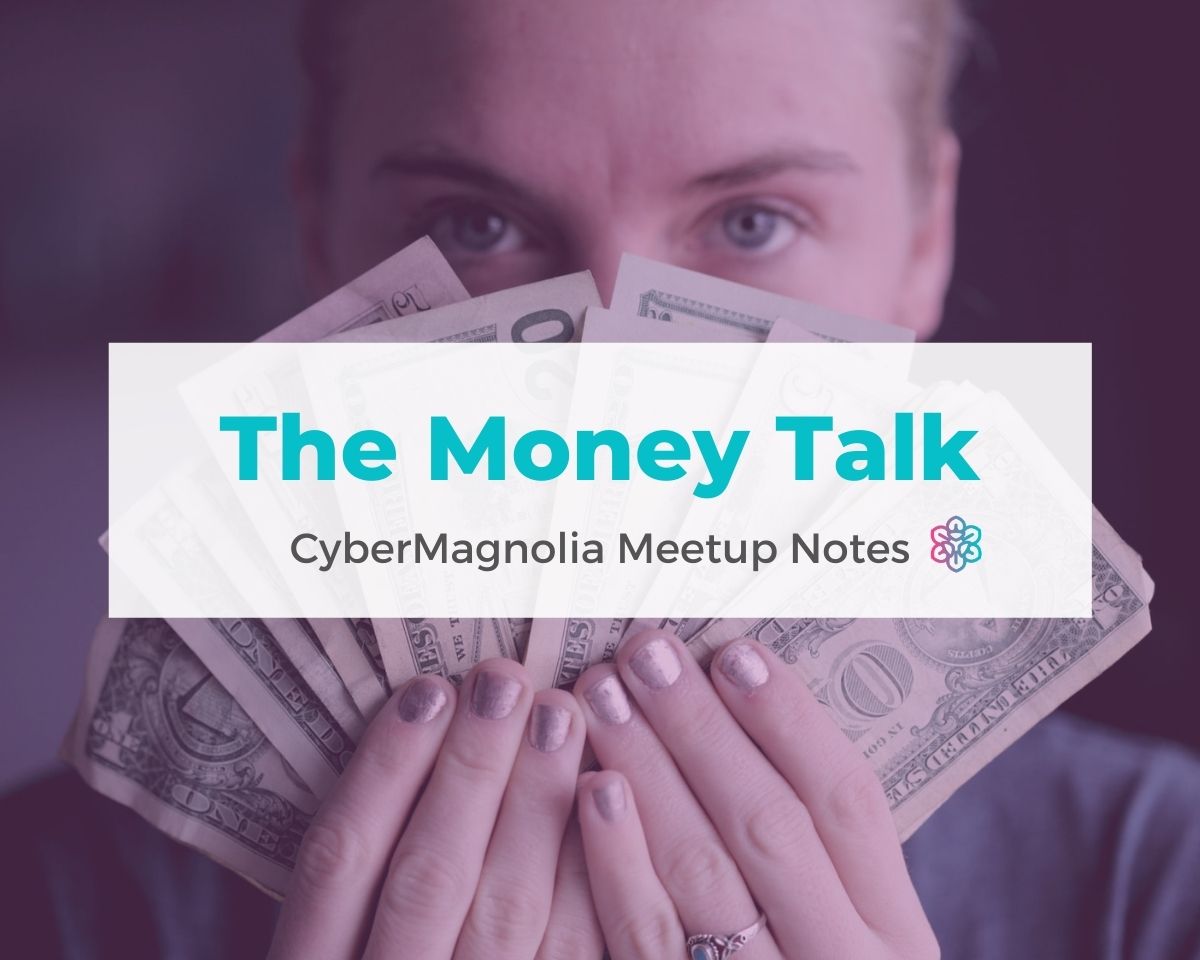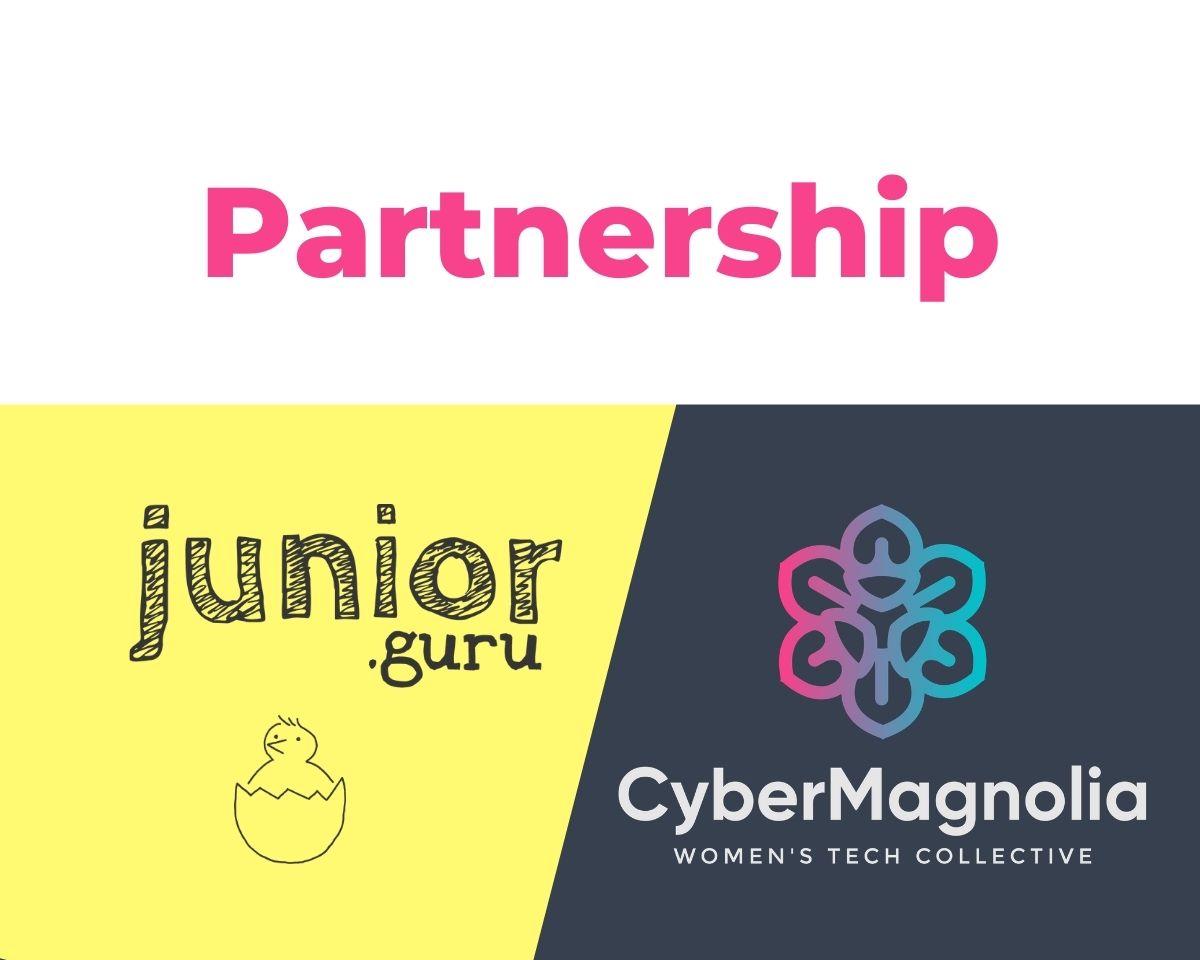Interview With Daria Grudzien
This next episode of our interview series includes a chat with Daria Grudzien - one of CyberMagnolia's Co-Founders.
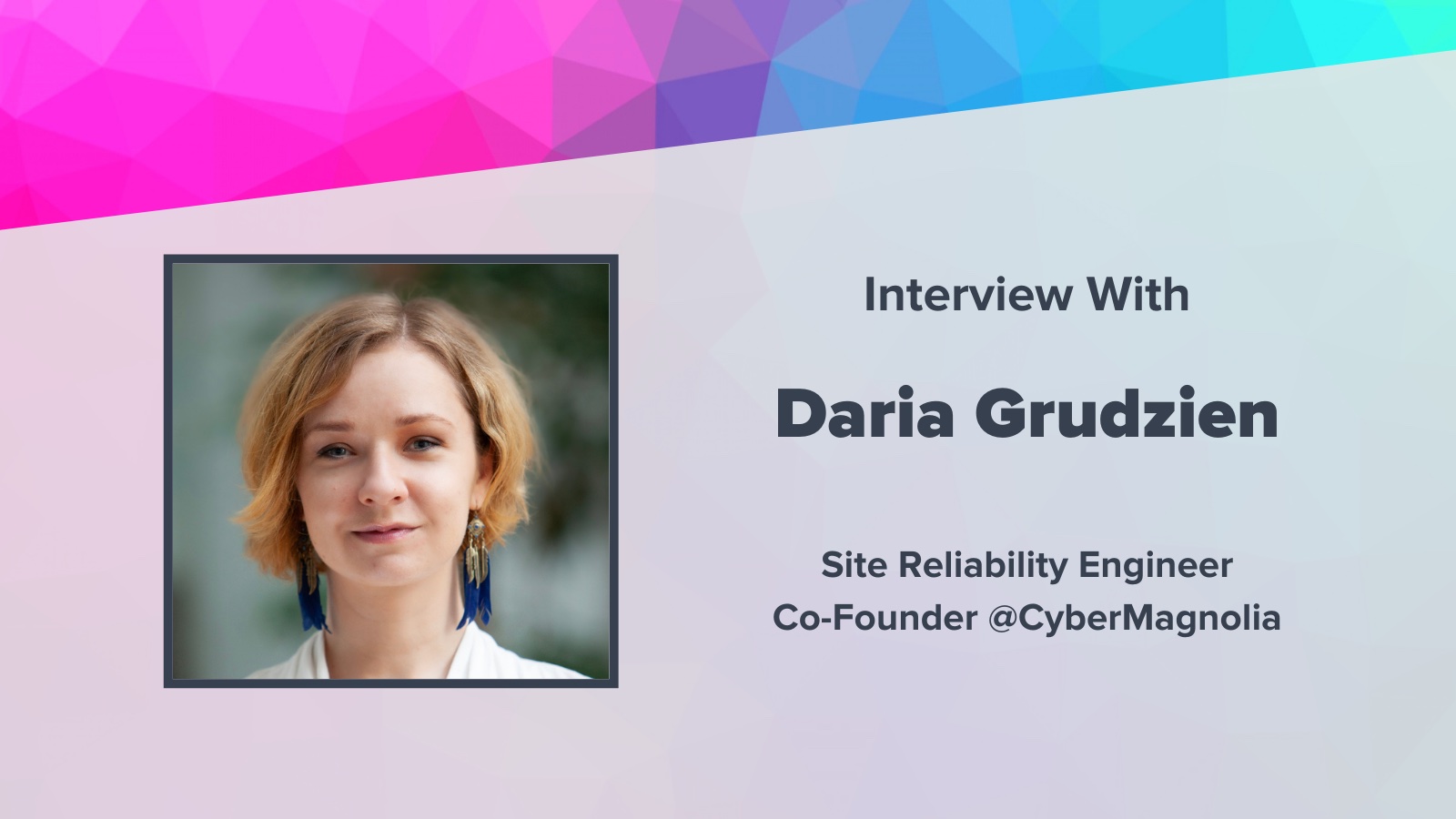
At the very beginning, I would like to thank you for bringing this community to life. And on that note, let me start with an obvious question. With so many existing groups for women in tech, what inspired you to found CyberMagnolia?
You’re right, there are many fantastic communities out there in the Czech Republic. They are largely focused on a particular programming language or framework - there’s a group for Python developers, Ruby on Rails developers, React developers. There are plenty of interest groups that are not represented yet, though - my field of Site Reliability Engineering is just one of them. I got proof of that when organizing a Ladies’ Edition of our Apiary meetup Hive Talks. Many of the guests came to me and said “I work in this and that field, and there are no women’s communities I could belong to. This tech meetup was exactly what we’re missing.”
I believe that the Czech tech market is too small for the current fragmentation. One important function of professional communities is opening doors to new opportunities. Think about how people usually share informal job openings in our field — a frontend developer may tell their friends about a manager thinking of hiring a new backend developer, or a project manager, or someone in the DevOps field. It’s really important to have a wide and varied network to get access to those jobs, and sticking to one particular technology makes it harder to make friends in other fields.
Many people have experience with joining communities that already exist, but you decided to build something from scratch. How long did it take from the initial thought to the first real steps? Were there any obstacles you needed to overcome?
Actually, I believe there are many small circles of a dozen or so women who meetup from time to time. There are quite a few women who have been trying to bring a couple of people together in the past years. Usually the main organizer burns out after a few years, or their life circumstances change and they are not able to schedule meetups regularly. I’m hoping to bring more of the active organizers together — that’s the only way to create a sustainable community.
The idea has been brewing in me for a few years now, but one evening I just decided to do it. The only real obstacle is the energy level and the amount of time all organizers can dedicate to the community — for all of us this is something we build after hours.
In an ideal world, where do you see CyberMagnolia three or five years from now?
I’d like it to connect all women working in tech in Czech Republic, regardless of seniority, job description, or tech stack they work with. I would also want for every conference and meetup organizer to know about the awesome work women do in multiple fields of tech, so that we really get more diversity among speakers. Having been involved in event organization, I know how hard it is currently to find women speakers.
Let’s now get back to you and your background. You have a Master’s degree in Cognitive Science. I have to admit my total lack of knowledge in this area, so I had to educate myself a bit, and I found out it has a strong connection with Computer Science. So is this where your affinity with the tech field comes from?
Cognitive Science is a multidisciplinary field focused on studying mind and brain, and it borrows from fields close to Computer Science — like logic, artificial intelligence, or even philosophy. I’ve been somewhat traumatized by my first programming classes (my focus was on neuroscience and psychology), but I did spend three solid years studying logic and it has fundamentally changed the way I think about the world.
While my degree helps me understand some concepts that would otherwise fly above my head, I decided to pursue a career in software enginnering because I think that’s where most of the innovation comes from — not just in terms of products, but the work culture and focus on productivity as well.
You have quite a diverse career, I would say. You worked as a Product Owner, so you began your tech career pretty early, yet your next steps led to a Sales and Marketing field. Could you give us an insight into what led you there and why you didn’t stay?
I’ve heard urban myths about people who finish kindergarten, know they want to be doctors, get their medical degree and never question that direction. I’m the complete opposite and I’ve been experimenting with the world quite a bit before realizing what I enjoy doing. The truth is that many of the fields I dubbed in are interconnected and have plenty of transferable skills. For example selling is a critical ability when working with people because it helps you to convince others to your ideas. I also found communication to be extremely important for Site Reliability Engineers because we get to talk with developers, users, and other teams a lot.
Currently, you are working as a Site Reliability Engineer (SRE). That is a relatively new role, at least in the context of the Czech IT market. Did you aim for this particular position?
After moving to Prague I’ve realized I’m hitting the limits of how far I want to take my work in sales and marketing. I decided to go back towards working on building tech products and did a bootcamp to catch up with modern web development. I’ve been shown the power of the command line and got hooked by accident, at which point I decided to find the most challenging and technical position anyone would hire me for. A friend of mine was one of the first SREs at Google, where the field originated from, so I had some general understanding of the role when applying. I think I also got lucky because some of my past work experience is applicable in my role and the Apiary team appreciated that.
Site Reliability Engineering applies software engineering practices to infrastructure and operational problems. One of its main goals is breaking down the disconnect between developers who write code and IT operators who deploy and maintain it. It helps everyone align around a single motivation: deploying new features to production in a fast and safe manner, and making sure the systems we all build are always available to the users. It’s a fascinating mix of multiple domains: programming, networking, operating systems, automation, monitoring and incident response among others. How to become a top notch SRE is a great, approachable introduction to the topic.
What did it take to get there from being a Head of Sales and Marketing? Were there any obstacles you had to overcome?
What it took, and still takes, is a lot of learning and hours spent trying to break and fix things. As SRE is still a new-ish field, it develops really fast and it takes double the amount of work to make up for my knowledge gaps in Computer Science, and keep up with the innovative tooling and approaches.
In the beginning my self-confidence was completely crushed. It’s hard to just “wing it” in software engineering and very quickly you realize how much you don’t know. Going from being a team lead to barely being able to contribute really affects the feeling of competence, and that’s why my main advice to juniors is to take care of their well-being.
Something I still struggle with, as do many of my friends and colleagues, is the feeling that I’m “not good enough” or “not technical enough” and I won’t be able to keep up in the industry. I got very lucky and my colleagues at Apiary have been incredibly supportive, making me feel that I am good enough and I can do it. One of them told me to look back every half year to see far I’ve come and it really is one of the best ways to get perspective and keep going however hard it gets.
And it really makes me believe that every person deserves to have someone making them feel so supported and welcome, because that does affect their performance. In my team we try to make it a habit to give people credit for great work, and provide ample positive feedback.
You write a blog dedicated to IT juniors, full of advice for situations they may face when starting a new job. I really enjoyed reading this. Do you have any other plans in this area? Become a mentor, maybe? Give talks to encourage juniors to make their first career steps?
I do both, really. I started the blog after realizing that I keep repeating myself often enough to create documentation instead. Having had almost a decade of professional experience before making the career change I got the chance to be more effective in a junior position. There’s just so much you learn about project management, time management, the power of transferable skills and learning itself after that time, that it breaks my heart watching younger people wasting time repeating the same mistakes or having the same blind spots.
In the past year I’ve had the privilege to mentor a young lady finishing up her bachelors in IT and got surprised with how in a few weeks, with a list of tailored recommendations, her skills became far more interesting to hiring managers. I was lucky enough to find a great mentor early in my career and it changed my life completely. Few hours of our help can turn someone’s life around and it’s one of the easiest ways to truly impact the world for the better.
I try to scale that effort up and in February 2021 I’ll be giving a talk on this topic at DevConfCZ for the first time.
Is there anything in particular that helped you in a junior IT role or did you learn everything the hard way?
There are a few skills that help speed up the learnings. This may sound counterintuitive but breaking stuff on purpose to observe what changed is one of the best ways to learn. When I was growing up adults would get upset if something got broken, so unlearning the fear of destroying computers with experiments is critical. It’s important to learn the jargon enough to be able to use documentation, and then learning to read other people’s code is the next one. I also learned early on how to get better at getting help and how to manage my code reviewers (yup, it’s a skill).
To end up on a lighter note, what are your plans for 2021?
I did decide it’s time for me to challenge myself and do some work related changes. I will be leaving Apiary in February and plan to take a month off to recharge before starting a new adventure. I will also continue helping the CyberMagnolia community grow and connect women in tech — join us if you’re a lady working in technology in the Czech Republic!
Thank you for the interview, Daria!
Bio
Daria Grudzien works in Site Reliability Engineering after making a career change. Her work focuses on helping developers deploy code to production faster, and bringing visibility to production systems. She’s passionate about the topic of oncall training and making sure that all engineers carrying the pager feel confident.
Daria is committed to building spaces that help people grow — she’s mentoring juniors starting their career, and is one of the Co-Founders of CyberMagnolia. When away from the keyboard, she’s either sailing across Europe, hiking through it or falling into the snow head-first while snowboarding.
CyberMagnolia is a growing women’s tech collective in the Czech Republic. Our community goes beyond the borders of programming languages, tech stacks or job descriptions. We’re there for each other creating a space in which every member feels confident asking hard questions, seeking advice, and offering to share their knowledge and experience. If you’re one of us — come and join us!
